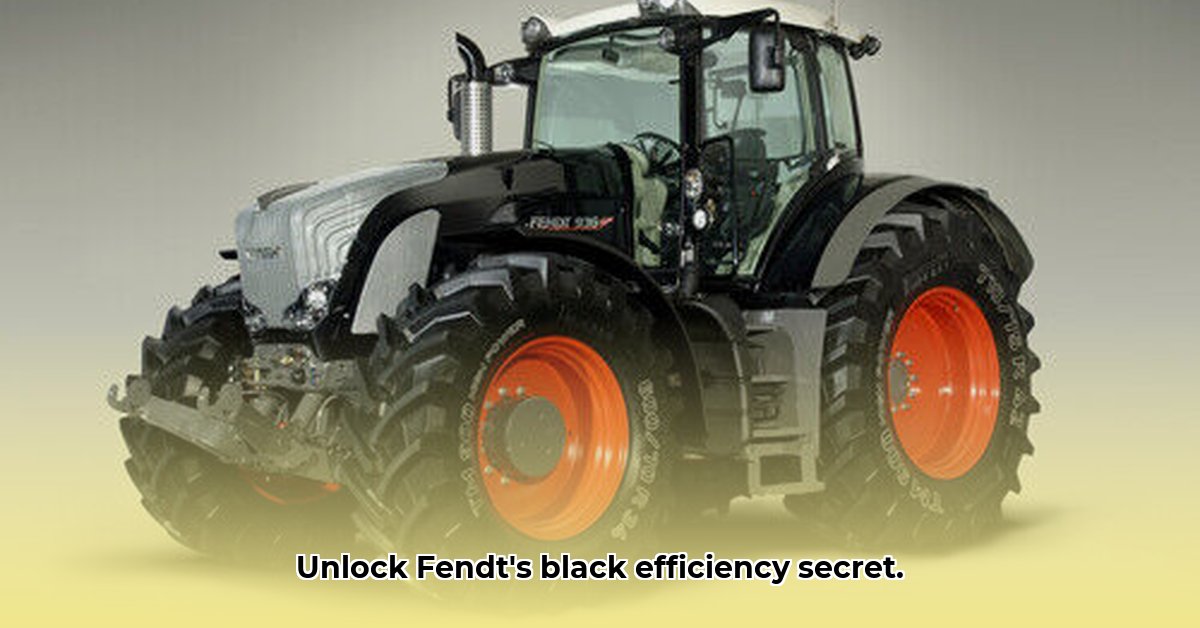
Fendt 1100 Vario MT: A Detailed Technical Review for Sustainable Agriculture
This detailed technical review analyzes the Fendt 1100 Vario MT tractor, evaluating its potential for enhancing efficiency and promoting sustainable agricultural practices. We examine its technical specifications, performance, economic implications, environmental impact, and limitations to help farmers make informed decisions. For comparison, consider the capabilities of other high-horsepower tractors like the John Deere 4 Series.
Technical Specifications and Features
The Fendt 1100 Vario MT is a high-horsepower tracked tractor known for its black livery. Key features contributing to its efficiency and sustainability include:
- Engine: High-torque engine designed for optimal fuel efficiency under varying loads. (Specific engine details, including horsepower and torque figures, are needed here for a complete technical specification).
- Transmission: Vario CVT transmission enabling seamless power delivery and reduced fuel consumption. The stepless variability allows for optimal engine speed for different tasks, minimizing fuel waste.
- Tracked System: Provides superior traction compared to wheeled tractors, minimizing soil compaction and improving fuel efficiency. This significantly reduces slippage resulting in less soil disturbance.
- Precision Agriculture Capabilities: Integrated GPS guidance systems, automated steering, and variable-rate application technology optimize resource usage (seed, fertilizer, pesticides), maximizing yields while reducing environmental impact. These features greatly enhance operational accuracy, minimizing overlaps and waste.
- Other Features: (Include details on additional features such as hydraulic systems, lift capacity, and operator comfort).
Performance Analysis
The Fendt 1100 Vario MT's performance is characterized by:
- Fuel Efficiency: Early reports suggest substantial fuel savings compared to conventional tractors. However, comprehensive independent testing across diverse operating conditions is necessary to quantify these savings accurately. Further research is needed to establish precise fuel consumption rates under various operating parameters.
- Traction: The tracked system provides significantly improved traction, particularly in challenging conditions. This results in increased productivity due to reduced wheel slippage.
- Soil Compaction: Reduced wheel slippage directly translates to significantly less soil compaction compared to wheeled tractors, promoting soil health and long-term productivity. Quantifying this reduction across diverse soil types requires further research.
- Overall Productivity: The combination of high power, superior traction, and precision agriculture capabilities leads to increased workload completion rates, improving overall farm productivity.
Economic Considerations
The Fendt 1100 Vario MT represents a substantial capital investment. Factors influencing its economic viability include:
- Initial Investment Cost: The high purchase price presents a significant barrier to entry for many farmers, particularly smaller operations.
- Operational Costs: Fuel consumption, maintenance, and labor costs must be carefully budgeted. A detailed analysis comparing operational expenses with existing equipment is needed to determine overall cost savings.
- Return on Investment (ROI): ROI calculations necessitate a comprehensive assessment of increased productivity, reduced operational costs, and potential resale value. The long-term perspective is essential for an accurate ROI calculation.
- Financing Options: Exploring leasing arrangements and other financing options can enhance accessibility for farmers facing budget constraints.
Environmental Impact
The Fendt 1100 Vario MT contributes to sustainable agriculture through:
- Reduced Fuel Consumption: Lower fuel usage directly translates to decreased greenhouse gas emissions.
- Improved Soil Health: Minimized soil compaction aids in water retention, nutrient cycling, and overall soil health, improving long-term environmental sustainability.
- Optimized Resource Utilization: Precision farming capabilities minimize waste of seeds, fertilizers, and pesticides, reducing environmental impact.
However, the manufacturing process and long-term disposal of the tractor must also be considered in a complete environmental life-cycle assessment.
Suitability and Limitations
While the Fendt 1100 Vario MT offers many advantages, certain limitations must be considered:
- Terrain Adaptability: The tracked system excels on many surfaces, but may not be suitable for extremely rocky or steep terrains. Its suitability is dependent on the specific farm topography.
- Farm Size and Operations: Its high cost may render it unsuitable for smaller farms or specific operations. A careful matching of tractor capabilities with operational requirements is essential.
Conclusion
The Fendt 1100 Vario MT presents a compelling case for increased efficiency and sustainable farming practices. Its advanced technology and design significantly impact productivity and reduce environmental impact. However, the high initial investment necessitates a thorough cost-benefit analysis and consideration of its limitations concerning terrain adaptability and farm-specific operational requirements. Ongoing research into fuel efficiency, soil compaction, and long-term environmental effects is crucial for a complete understanding of its overall contribution to sustainable agriculture. Furthermore, exploring financing options and collaborating with agricultural specialists are key steps in making informed decisions.